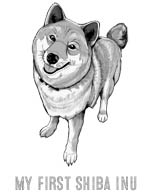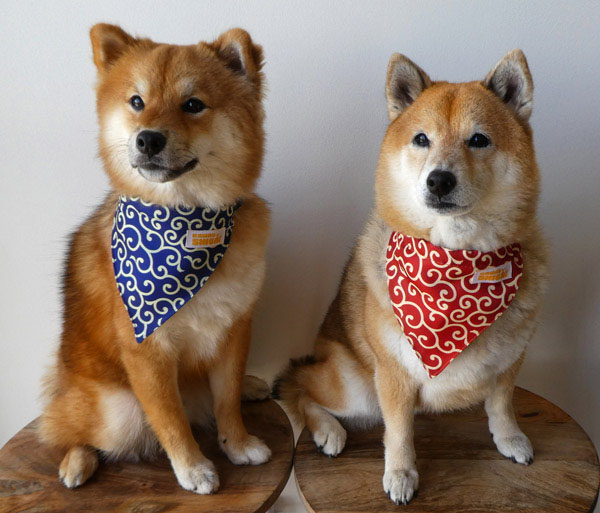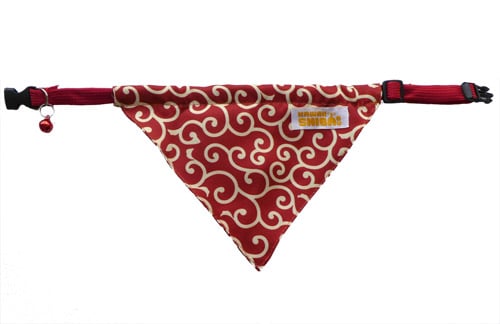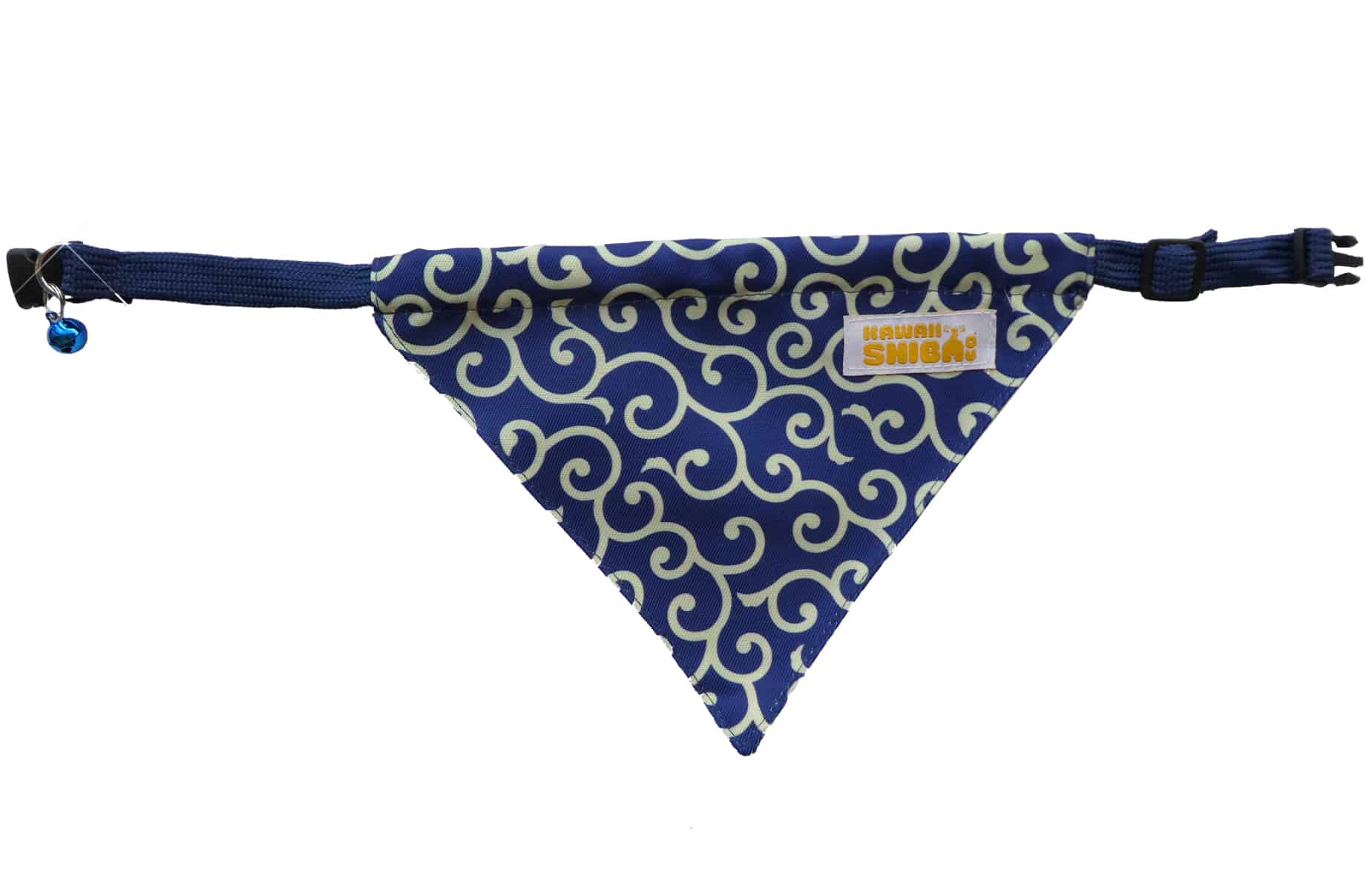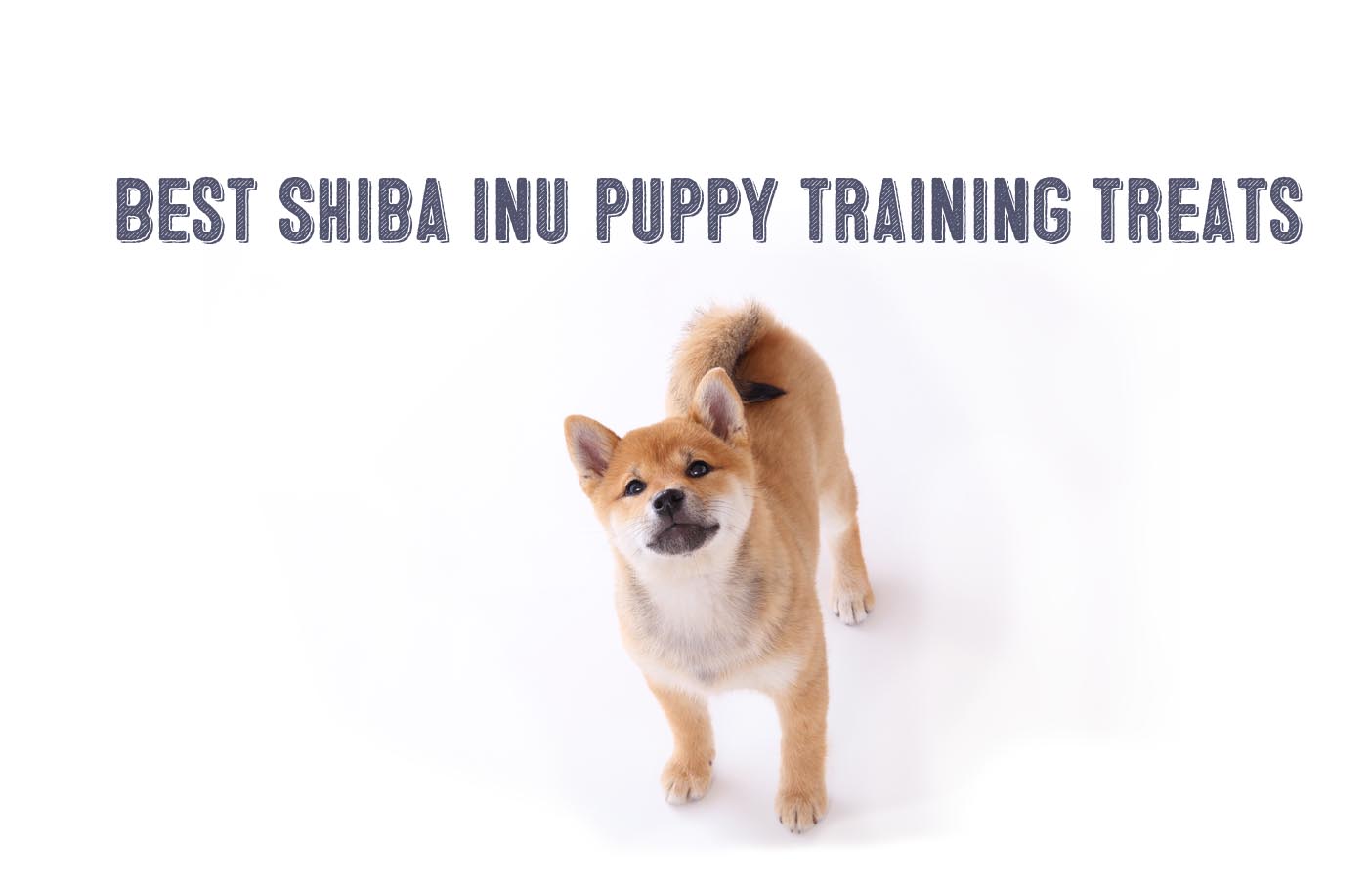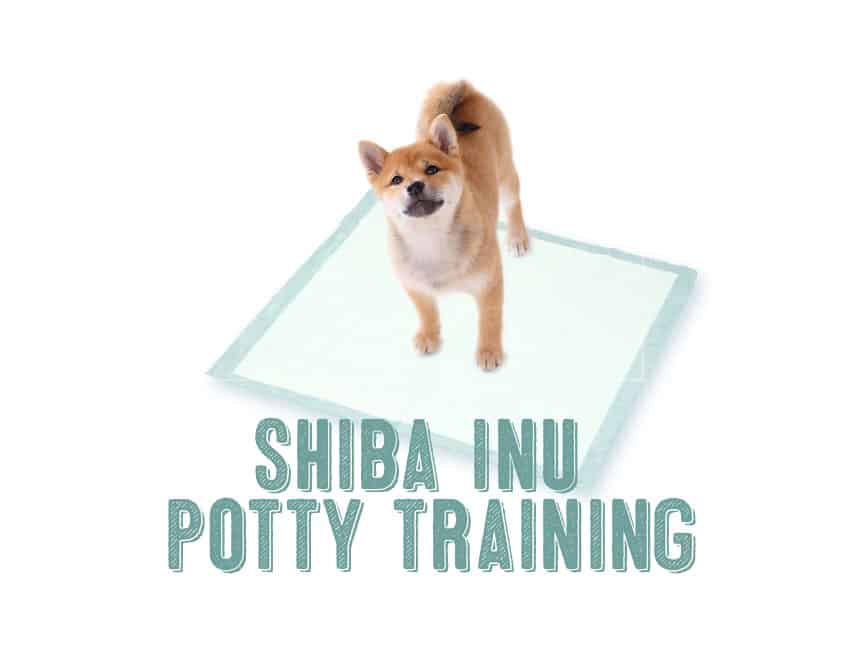
On occasion, our posts contain affiliate links. However, we only recommend products that we truly believe in. For more information, visit my privacy policy page.
Potty training is perhaps the most unloved aspect of of puppyhood, even for Shiba Inu pups!
While some Shiba Inu puppies catch on immediately (they’re super smart!) not all of them will, and training your puppy to only go potty outside can be frustrating and time consuming.
Luckily, there are a few things working in our favor:
Shiba Inus are incredibly intelligent dogs, they are eager to please their masters, and they are naturally fastidious.
While house training any puppy can be a challenge, some breeds are known for being easier than others and Shiba Inus generally do very well once they understand what we want from them.
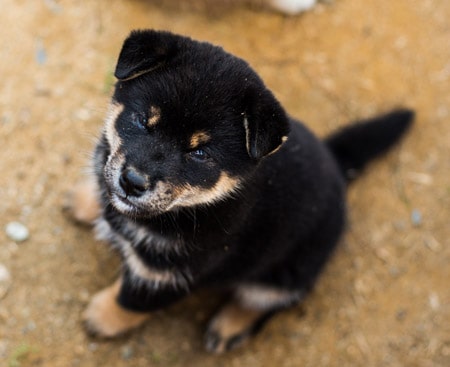
When To Begin Potty Training Your Shiba Inu Pup
It’s important to start house training your Shiba Inu puppy soon as possible - as early as seven weeks old.
If you’re lucky, your Shiba Inu’s breeder may have already begun the house training process before you even take your pup home. But this isn’t always the case.
Many puppies are used to simply “going” whenever and wherever the mood strikes them, so it’s vital to begin the house training process with your Shiba Inu puppy as soon as they come home, which is usually right around eight and eleven weeks of age.
Because Shiba Inus are relatively small dogs it’s important to be realistic about their ability to hold their bladder.
Bigger puppies with bigger bladders are often easier to house train than small dogs, simply because they have the ability to physically hold their urine for longer stretches of time.
When it comes to Shiba Inu puppies, the best rule of thumb is the month / hour rule. As in, if your Shiba Inu puppy is one month old, they can hold it for one hour. If they are three months old, they should be able to hold it for up to three hours.
However, these are just estimates - factors such as weather, amount of play / water intake will affect how often your puppy needs to “go.”
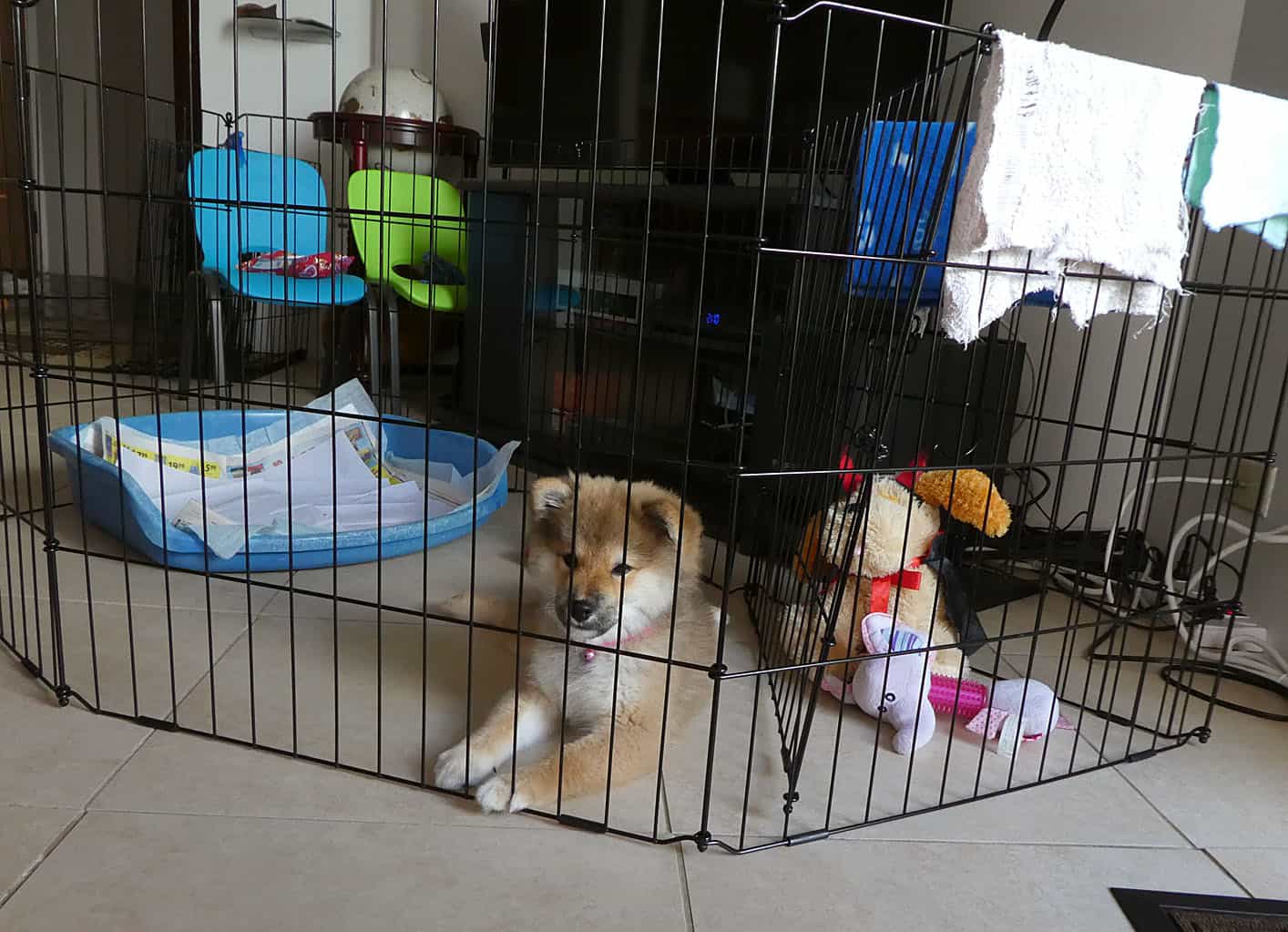
How Long Will Potty Training Take?
While some puppies pick it up extremely quickly, house training your Shiba Inu puppy can be quite a long process and some dogs aren’t 100% reliable until 6 months of age and older.
To ensure the best chance of potty training success, you need to be consistent and methodical during the early stages of training.
During these early stages, you or another family member should make every reasonable attempt to actively monitor the puppy during the times the pup is likely to potty. This technique is called 100% management and is used by many of the world's top dog trainers.
By being vigilant and taking the extra time to train your your puppy now, you will save yourself and your family a lot of time and headaches later.
If you do take the extra time to consistently train your Shiba pup, the pup can be potty trained by as early as four-months old. An accident may happen here and there, but for the most part they will know where they need to go do do their business.
Shiba Inu Potty Training Secret Weapon - Treats and Praise!
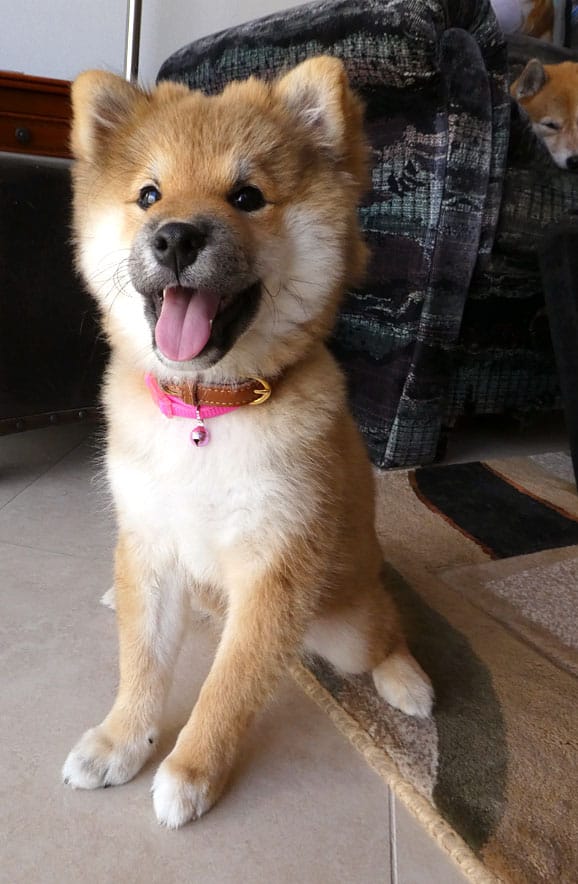
While there are tons of different housetraining methods, there are two things that no potty training regime should be without: treats and praise.
While our grandparents and parents may have simply “rubbed their noses in it” in order to deter them from doing it again, we’ve acquired quite a bit of knowledge on doggy psychology since then.
We now know those methods don't work. It's also confusing and gross to do to your young puppy.
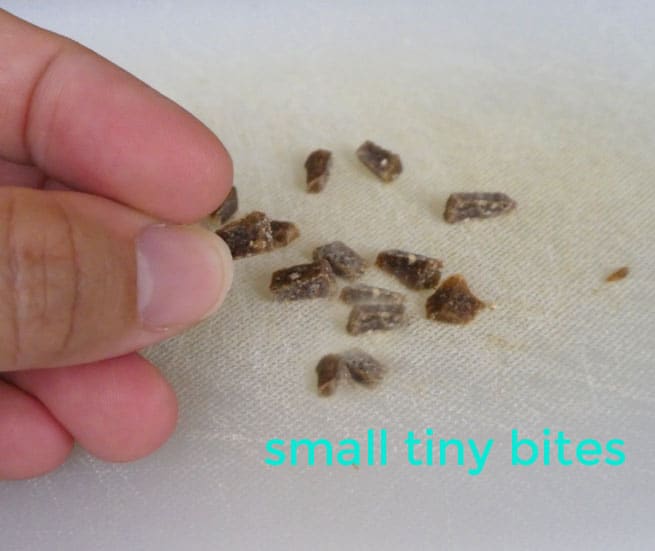
House training should be a fun and positive experience for your puppy. Shiba Inus are extremely dedicated and loving with their masters and will be eager to please you. Your job is simply to let them know what you want them to do.
Using treats and praise (positive reinforcement) rather than punishment (negative reinforcement) is the most effective way to teach your Shiba Inu the rules of the home.
When your puppy goes potty in the designated area, praise them profusely!
Make a party out of it.
Shower them with congratulatory praises, give them treats, sing them a little potty song, do whatever you need to do to show your Shiba that you’re pleased with them!
When they have an accident, say nothing and clean it up (preferably out of sight of your Shiba Inu puppy and with a strong enzyme based cleaner) and try better next time.
Praise and treats are absolutely essential and will foster a relationship of love and trust with your puppy during the house training process, rather than one of negativity and fear of punishment.
Shiba Inu Potty Training NO NO's
The guidelines about what not do when house training your Shiba Inu puppy are pretty straightforward: Don’t hit your puppy, don’t yell at your puppy, and definitely don’t rub your puppy’s nose in it when they have an accident in the house.
Doing any of the above will do absolutely nothing for your potty training efforts.
In fact, it will only teach them that you’re not to be trusted and that they should pee somewhere where you can't "catch" them to avoid your wrath.
It’s important to realize that every single accident your puppy has in the house after the first few days at home is not their fault. They're simply too young to understand much of anything at this point.
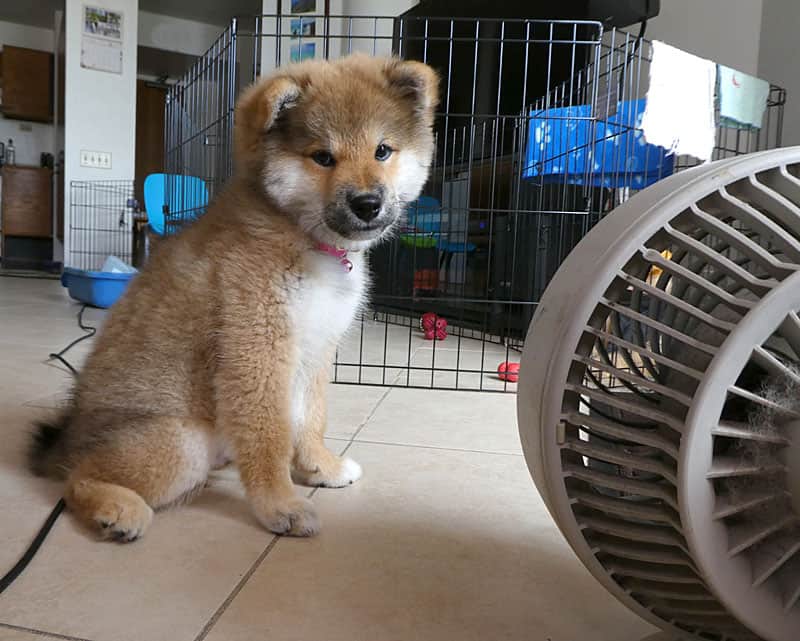
It will take a while for them to adjust to their new home and learn where to potty.
When your puppy has an accident, consider the following: did you forget to monitor them after they ate, napped, or played? Did you miss the signs that they wanted to take a bathroom break?
The Two Best Methods For Potty Training - Crate Training and Potty Pad Training
Crate Training Method:
One of the most popular, yet highly debatable methods of house training your puppy crate training.
While most professional dog trainers, behaviorists, and experts support and embrace crate training, there are those who believe crate training is cruel.
Nothing could be further from the truth.
Crate training when done correctly will help your puppy pick up potty training faster and with less stress. Crates also provide a ‘safe area’ for your puppy similar to how wild dog mothers care for their young pups.
What’s crueler is the fact that 40% of puppies are ‘given up’ or abandoned in their first year of life by owners who can’t deal with their “issues.”
Understandably, a large portion of those “issues” are likely related to potty training or lack of. So by learning the proper methods of potty training now and being vigilant about implementing these methods, you are giving your new puppy the best opportunity to live a happy and fulfilling life with his new family members.
Crate Training Basics
It’s important to understand that crates should be used as tool for learning and not a punishment.
The first rule of thumb is to think of your Shiba Inu puppy’s crate as their “den” rather than a cage. Success in house training your Shiba Inu puppy using crate training can be boiled down to two main points:
- Shiba Inus won’t “go” in confined spaces (the crate) where they sleep and eat.
- Crating your puppy when you are unable to supervise them leaves less room for accidents.
Shiba Inus are creatures of comfort, and they like nothing more than snuggling up in a warm place. You should take advantage of this instinctual behavior when crating your puppy.
You should introduce the crate to your puppy immediately, and begin grooming them to consider the crate their own private oasis, rather than confinement. Here are a few tips that will make house training with a crate much easier and more pleasant for everyone:
- Feed your puppy in their crate. Most dogs, including Shiba Inus, will be reluctant to urinate or defecate in the place where they eat. This is particularly true for Shibas, as they tend to be very discerning and fastidious dogs.
- Start slow. Don’t simply put your puppy in the crate and shut the door. You want your Shiba Inu pup to love going into their crate. Offer them treats and slowly lure them in, and don’t even close the crate door the first few times. Once you begin shutting the crate, only leave them in for a few minutes at a time and always stay within eyesight. Think about timing putting your puppy in the crate when the pup is thoroughly pooped out. That way, your puppy will start to associate the crate as much needed peaceful rest area. Slowly but surely, you can get them used to spending more time in the crate, even if you’re not in the room with them.
- Make the crate as comfortable as possible. While there are plenty of fancy crate pads and blankets on the market, it’s probably best to start with an old towel. Your puppy wont know the difference and towels are less expensive and easier to wash in the case of an accident (and there will be accidents!)
- If your puppy pees on the bedding inside the crate, remove it. Some Shiba Inu puppies can’t resist a nice comfy place to pee. If your Shiba Inu only pees inside the crate when there is something soft inside, feel free to remove it. Your Shiba Inu puppy is perfectly capable of sleeping in the crate without a blanket for a while. Although you may feel guilty, it’ll go a long way in the house training process if you can ensure that your puppy won’t urinate inside the crate.
What Not To Do When Crate Training Your Shiba Inu Puppy
While a crate can be a great tool, it can also make life harder for you and your Shiba Inu puppy if you don’t utilize it correctly. Here are a few tips on what not to do when crate training your Shiba Inu pup:
- Never use the crate as a punishment. If your puppy begins to dislike the crate, it pretty much becomes useless. The crate should be an oasis for your puppy, and many adult Shiba Inus who were crate trained as puppies continue to hang out in their crate voluntarily as adults.
- Never leave stains in the crate untreated for too long. If your puppy has an accident in the crate you need to wash it very thoroughly with an enzymatic cleaner. Even the most minute trace of scent will encourage your puppy to use it as a toilet again!
- Never leave your Shiba Inu puppy in the crate for unreasonable stretches of time. You cannot expect your Shiba Inu to hold it for 8 hours in the crate while you’re at work all day. Your puppy may physically be unable to hold it and will likely pee in the crate, which will set you back in your house training journey. It’s also not very nice to leave your puppy in a soiled crate all day. Keep your expectations reasonable and only crate them for a max of 3-4 hours at a time (and only when they’re old enough to hold it!)
What If Your Shiba Inu Puppy "Goes" In The Crate?
While it’s very unusual, some Shiba Inu puppies, especially very young ones will have occasional accidents in their crates.
The most important step to prevent this from happening again is to clean the accident up so that absolutely no trace of urine or feces can be detected. This of course is easier said than done.
Use enzymatic cleaners instead of typical household cleaners like ammonia or bleach. Enzymatic cleaners are better able to better remove any traces of potty smell.
You also need to clean and launder any blankets or toys that were soiled as well.
In cases where your puppy constantly goes in their crate, potty pad training may be a better method to try. Crate training is pointless if your puppy consistently urinates in the crate.
Try to determine the root cause of the issue. Are you not supervising your puppy enough? Is the puppy receiving too much food and water at one time?
Before losing all hope, though, it’s a good idea to take your puppy to the vet to rule out any health problems that may be causing the issue.
Potty Pad Training Method
There are some dog trainers that discourage the use of potty pads because they say that it will make your puppy think that it’s okay to potty inside the house.
While this logic is reasonable, how are owners living in apartments expected to take “out” their young, unprotected and unvaccinated dogs?
They can’t. Because it’s simply not safe nor feasible.
Therefore, potty pad training is often the first type of potty training for new puppies. Potty pad training will teach your puppy that it’s not okay to just go anywhere and everywhere to potty.
For the best chance of success, it's best to use the potty pad training method with a puppy "x" pen.
Your puppy should not have free reign of the house at any time - especially unsupervised.
Eventually, when the puppy if fully vaccinated and ready to “go” outdoors, training can begin to accomplish this.
Don’t fret. With patience and consistency, your puppy will eventually learn and enjoy being able to go outside to potty.
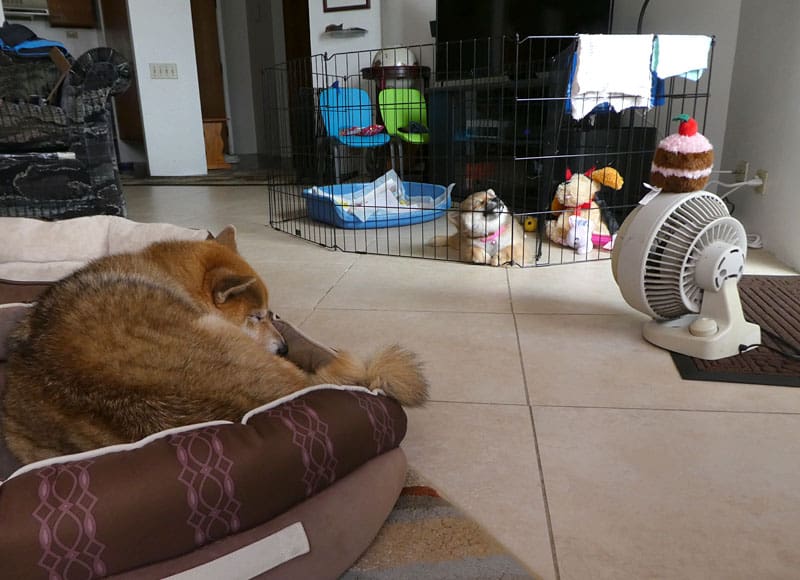
From Indoor Potty Pads To The Great Outdoors - A Quick Step-by-Step Guide:
- Once your puppy is fully vaccinated begin the training by relocating the potty area nearer to the main exit door
- Be on top of your puppy’s main potty times and take your puppy out to their business consistently during these times
- Bring extra scrumptious treats during your puppy’s outdoor potty session and enthusiastically reward your pup when they do their business outside.
- Repeat this process daily while slowly lengthening the time between potty sessions
- Continue to leave the potty indoors until your puppy has been consistent in “going” outside
- Use "keywords" when pottying your puppy. For example, when getting ready to go outside, you can say, "let's go potty." And when you puppy is just about ready to potty, use a keyword that your puppy will learn to associate with that specific act of pottying. (Don't use anything too vulgar or attention grabbing). Using keywords early will make future pottying breaks much easier and quicker.
Using Dog Walking Services
Since most of us have to work outside of our homes, there will be times when you may need to leave your puppy home alone.
If you are independently wealthy and don’t have a day job (or one of the lucky folks who can work from home) feel free to skip this part.
A reputable dog walker can be a great boost when it comes to house training. A lunchtime walk will break up the day for your Shiba Inu puppy, give them a chance to relieve themselves, and will give them the opportunity to socialize with another dog-loving human.
Your puppy can’t and shouldn’t be expected to hold their pee all day while you’re at work, and hiring a dog walker is a great solution for the midway walk.
Here are some tips on finding a great dog walker who you can trust:
- Ask for recommendations. Many dog walkers get new clients via word of mouth. Ask your friends, ask your neighbors, and ask your veterinarian if they can recommend someone.
- There are companies that specialize in dog walking services, and most of them have reviews. Check out the reviews of dog walkers in your area and schedule a few interviews. Even better, lots of these companies offer GPS tracking so you can see exactly where your dog is going during their walk and get periodic updates from the walker.
- Schedule a meet and greet to see how the walker interacts with your Shiba Inu. If you don’t have a good feeling, move on!
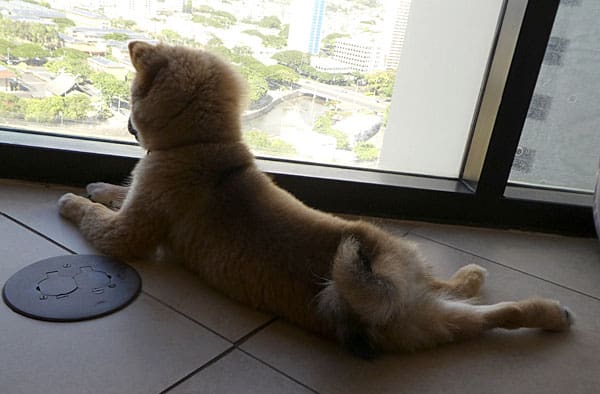
Conclusion
No one particularly likes the house training process: it’s long, messy, and there are always setbacks. However with a little patience, praise, treats, and love, your Shiba Inu puppy will be going “potty outside” in no time.
Remember to use positive reinforcement and don’t be too disappointed if your Shiba Inu pup doesn’t get the hang of it immediately.
Remember that Shiba Inus are smart and biddable-once your pup knows what you expect of them, they’ll want to please you.
HELLO!
Thanks for visiting Myfirstshiba.com! We do our very best in providing our readers with awesome content about our beloved Shiba Inu breed. Some of our articles include reviews and recommendations to our favorite products. We do earn commissions from affiliate links that help support our work and mission. Thanks again for visiting. Shiba Kisses To All!
